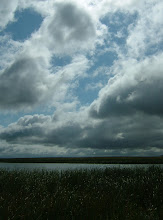
Peaches were so much more than just a nutritional snack. They were bound up in little bits of tradition and the social network of rural North Dakota. First, there were a few bland ones available at the stores; maybe a few good sweet ripe ones that were pretty pricey. Then, in late summer, someone would come through with a truck of cases. Usually it was a trucker who was carrying something else but had packed in his empty space with a few dozen cases or maybe even just filled his cab and the corners of his sleeper with them. They would only be around for a short period of time, maybe some trucker staying overnight somewhere, with a friend or at a local motel. Neighbors would stop by and tell when they were going to get theirs and ask how many cases you wanted. Cash was searched for or offers of temporary loans made. Or if you were going there sooner, you might offer to do the picking up, but you had to know the side orders that others had made too, and where to drop them. Some had standing orders with each other that were laid down earlier in the summer with anticipation of a shipment showing up somewhere, and sometimes things did get doubled up, a situation that was usually greeted with great humor. It was all very exciting and a reason for people to reconnect and pass along a bit of news or gossip in the process. To share your successes or bemoan your troubles. To share a joke about the crops or the weather and commiserate on the uncertainty of it all. Then when the peaches came, inside their wooden crates, there was that screech of the staples as the case was pried open. There they were, nestled in their delicate but crisp tissue paper wrappings or their paper mache nests. How ripe would they be? Would they be sweet and juicy or need a few days to mellow? Often, they had to be eaten promptly or 'put up' in jars since they were usually pretty ripe compared to the store peaches. The first ritual was to go through for the ripest ones or the ones with a bit of spoilage that needed to be cut away and eat those right away. If we were cooking dinners at noon for the farming men, we might slice them into a bowl and add a bit of crystal sugar and cream. We might make up a crisp or a pie with some of them. Jello with sliced peaches in stemmed wine glasses was an elegant treat for the dusty farmers. Peaches were featured prominently in desserts for the next few days. After supper or before bed, they were good sliced over a bowl of Schwann's vanilla ice cream. Breakfast might be just a sliced peach or one eaten in hand like an apple, or maybe peaches sliced over the breakfast milk and cereal. One of my favorite things was to grab a ripe peach from the wooden case and head out the back door for a walk in the pasture along the river with my dog. We would brush through the tall grass, the dog bounding ahead to make a path for me. I would stroll behind in the sun, avoiding grasshoppers and seeking prairie flowers, while peach juice slid down my wrist and the sun shown golden on the prairie grass seeds and glinted silver on the water of the wide river.

3 comments:
Wow, you paint such a vivid picture (in addition of course to the awesome picture of the fruit itself). I can remember those peaches too but I hadn't connected such deep meaning to them. Thank you. I do remember the sticky/dirty hands I ended up with at the end of a "session" with a bunch of them.
"farmer men"? Where were the "farmer women"? Didn't they get dusty and hungry too? Just asking...
'"farmer men"? Where were the "farmer women"? Didn't they get dusty and hungry too? Just asking...'
in the world i grew up in, the men farmed the fields and the women served in support roles. made the breakfast and the dinner (at noon) and the lunch (at 4 in the afternoon) and the supper (in the evening) and went to town for parts and did the laundry of dirt-coated clothes and in the better-living-thru-chemistry years, washed the herbicide and insecticide laden clothes and maybe kept the records and did the books and maybe called to inquire about market prices or prices of needed supplies and helped move equipment from field to field and went to town for parts again. only one woman we knew actually 'farmed' by driving the tractors and trucks and milking the cows and i bet she still cooked the meals and cleaned the house and did the laundry. it was a sexist world back then. in many ways it still is. when my cousin, the farmer, died, people wondered behind her back and asked openly what she was going to do. meaning, rent the land or sell it and move and if so to where. she farmed. she is still farming. no, not driving the tractors and trucks, but farming the modern way by hiring the work to be done by others and managing it all from her office and her computer. but in my childhood in the 60's and 70's, it was very much a world of gender-specific roles.
Post a Comment